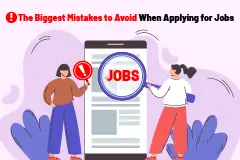How AI is Changing the Job Market: What You Need to Know
Artificial Intelligence (AI) is no longer a futuristic concept—it’s here, and it’s transforming the job market in profound ways. From automating routine tasks to creating entirely new industries, AI is reshaping how we work, the skills we need, and the careers we pursue. Here’s what you need to know about how AI is changing the job market and what it means for your future.
1. Automation of Routine Tasks
AI excels at handling repetitive, predictable tasks, which means many jobs that involve routine work are at risk of being automated. For example:
- Manufacturing: Robots powered by AI are increasingly taking over assembly line jobs.
- Customer Service: Chatbots and virtual assistants are handling customer inquiries, reducing the need for human agents.
- Data Entry: AI tools can process and organize data faster and more accurately than humans.
What It Means for Workers: While automation may eliminate some jobs, it also creates opportunities to focus on more complex, creative, and strategic tasks. Upskilling in areas like problem-solving, critical thinking, and emotional intelligence will be crucial.
2. The Rise of New Jobs and Industries
As AI automates certain tasks, it’s also creating entirely new job categories. For instance:
- AI Development and Maintenance: There’s a growing demand for AI engineers, data scientists, and machine learning specialists.
- AI Ethics and Regulation: As AI becomes more pervasive, there’s a need for experts who can address ethical concerns and develop regulations.
- Human-AI Collaboration: Roles that involve managing AI systems or working alongside them are emerging, such as AI trainers and explainability experts.
What It Means for Workers: Staying adaptable and open to learning new skills is key. Careers in tech, data analysis, and AI-related fields are likely to see significant growth.
3. Changing Skill Requirements
AI is shifting the skills employers value most. While technical skills like coding and data analysis are important, soft skills are becoming equally critical. These include:
- Creativity: AI can’t replicate human creativity, making it a highly sought-after skill.
- Emotional Intelligence: Jobs that require empathy, communication, and interpersonal skills are less likely to be automated.
- Lifelong Learning: The ability to continuously learn and adapt is essential in a rapidly changing job market.
What It Means for Workers: Invest in both technical and soft skills. Online courses, certifications, and hands-on experience can help you stay competitive.
4. Impact on Different Sectors
AI’s influence varies across industries:
- Healthcare: AI is being used for diagnostics, personalized medicine, and administrative tasks, improving efficiency and patient outcomes.
- Finance: AI-powered tools are transforming areas like fraud detection, investment analysis, and customer service.
- Retail: From personalized recommendations to inventory management, AI is revolutionizing how businesses operate.
What It Means for Workers: Understanding how AI impacts your industry can help you identify opportunities and areas for growth.
5. Ethical and Social Implications
The rise of AI also brings ethical challenges, such as:
- Job Displacement: While AI creates new jobs, it may also displace workers, particularly in low-skill roles.
- Bias and Fairness: AI systems can perpetuate biases if not carefully designed and monitored.
- Privacy Concerns: The use of AI in data collection and analysis raises questions about privacy and security.
What It Means for Workers: Advocating for fair and ethical AI practices is important. Workers in all fields should be aware of these issues and push for responsible AI development.
6. Preparing for the Future
To thrive in an AI-driven job market, consider the following steps:
- Embrace Lifelong Learning: Continuously update your skills through courses, workshops, and certifications.
- Focus on Uniquely Human Skills: Develop skills that AI can’t replicate, such as creativity, empathy, and complex problem-solving.
- Stay Informed: Keep up with trends in AI and how they affect your industry.
- Network and Collaborate: Build relationships with professionals in your field and explore opportunities for collaboration.
· Conclusion
· AI is undeniably changing the job market, bringing both challenges and opportunities. While some jobs may disappear, new ones will emerge, and the nature of work will continue to evolve. By staying adaptable, investing in your skills, and embracing the potential of AI, you can position yourself for success in this new era. The future of work is here—make sure you’re ready for it.
 Instagram
Instagram

 Share
Share



